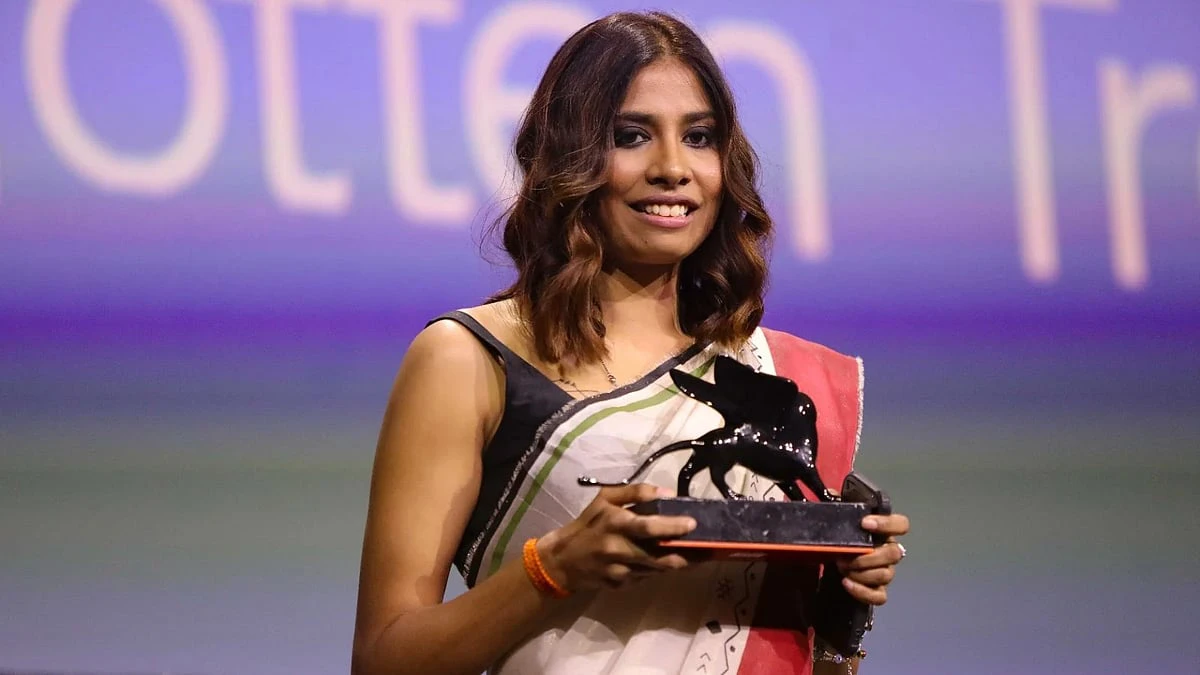Anuparna Roy scripted history at the 82nd Venice Film Festival, which concluded in September. She won the Orizzonti award for Best Director for her debut film ‘Songs of the Forgotten Trees’.
It is about two migrant women in Bombay. One is a sex worker, and the other works at a call centre. They fall in love. The film follows their struggle to express their love for each other and how they accept each others’ flaws. “I always wanted to make a film, that talks about the intimacy between two women. I wanted to make a love story that breaks societal norms,” Anuparna tells Showtime.
She describes the win as “over-whelming” and says the challenge now is to make her next film.”Anurag Kashyap gave me a lot of advice, beyond the hierarchy of a senior and junior. He knew my strengths and flaws and guided me throughout, says the 27-year-old filmmaker. Kashyap presented the film.
Edited excerpts:
Is the film based on incidents you encountered?
Growing up in my maternal hometown, I watched my widowed grandmother – who had been married off at the age of nine to my 30-year-old grandfather – and my aunt, her stepdaughter, become close friends because they were the same age. After my grandfather’s death, their bond grew stronger. They ran the entire household without the support of any male member, raising four daughters and sharing expenses, pain and happiness. That inspired me to make a film about women and their relationship in a patriarchal society.
Tell me about your journey from Purulia to Venice.
All around me, women’s needs and voices were suppressed and they did not have opportunities for growth. When you don’t have a voice, you begin to gather the courage to raise it. I wanted to write something about a strong woman who will dismantle the whole society. But I slowly understood the grey shades of both the genders. And I ended up writing about two women who are also grey characters. They are diplomatic, and choose to serve men. Despite that, they are no victims of society. Cinema was my only escape as a child and I always wanted to be a part of it. After my 12th grade, I realised I wanted to become a writer. My friends then encouraged me to try filmmaking.
Did you watch a lot of films growing up?
I watched a lot of Ritwik Ghatak’s films. As a child, I was not so fond of Satyajit Ray’s works. It was difficult to understand the metaphor and imagery in his films. So it took some time to become a fan. But I loved Ghatak’s works from the beginning. It was about marginalised people and the poverty seemed very real. I was a fan of commercial films as well. I used to watch a lot of Shah Rukh Khan’s movies. I watched ‘Kuch Kuch Hota Hai’ more than 20 times just to make sure people fall in love.
What are your thoughts on machismo and misogyny in Indian cinema?
Masculinity and the male gaze in cinema have always bothered me. They show a clear sense of patriarchy coming from the directors, male and female. In my film, the main character, Thooa, is a part-time sex worker. Men continuously visit her apartment. The general assumption is that there needs to be a lot of sexual activity shown on screen. We definitely shot some, but didn’t use them. I questioned myself: ‘Why do I need these scenes to describe two people having sex?’. Instead, I have used something else in the film; people can call me a pseudo-feminist, but at least I tried to break the male gaze.
A lot internationally recognised films are finding it difficult to get a release in India…
Why should art suffer for the sake of nationalism? If I can get a smooth release in India, I’ll be happy. If not, then it’s fine. My film is beyond borders, languages and cultures. I have been called a leftist after my Venice speech where i spoke about Palestine. Talking about genocide cannot give you a political tag. No politics has ever done anything good for women. So I’m nether leftist nor rightist?
